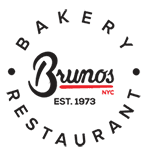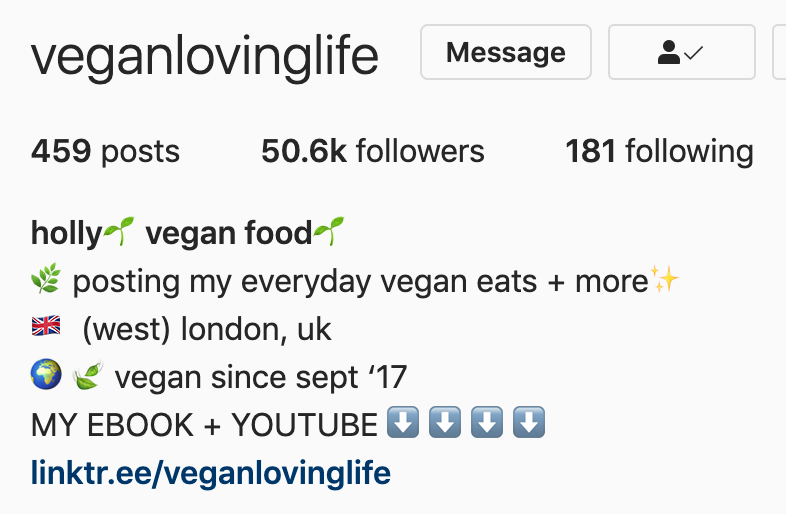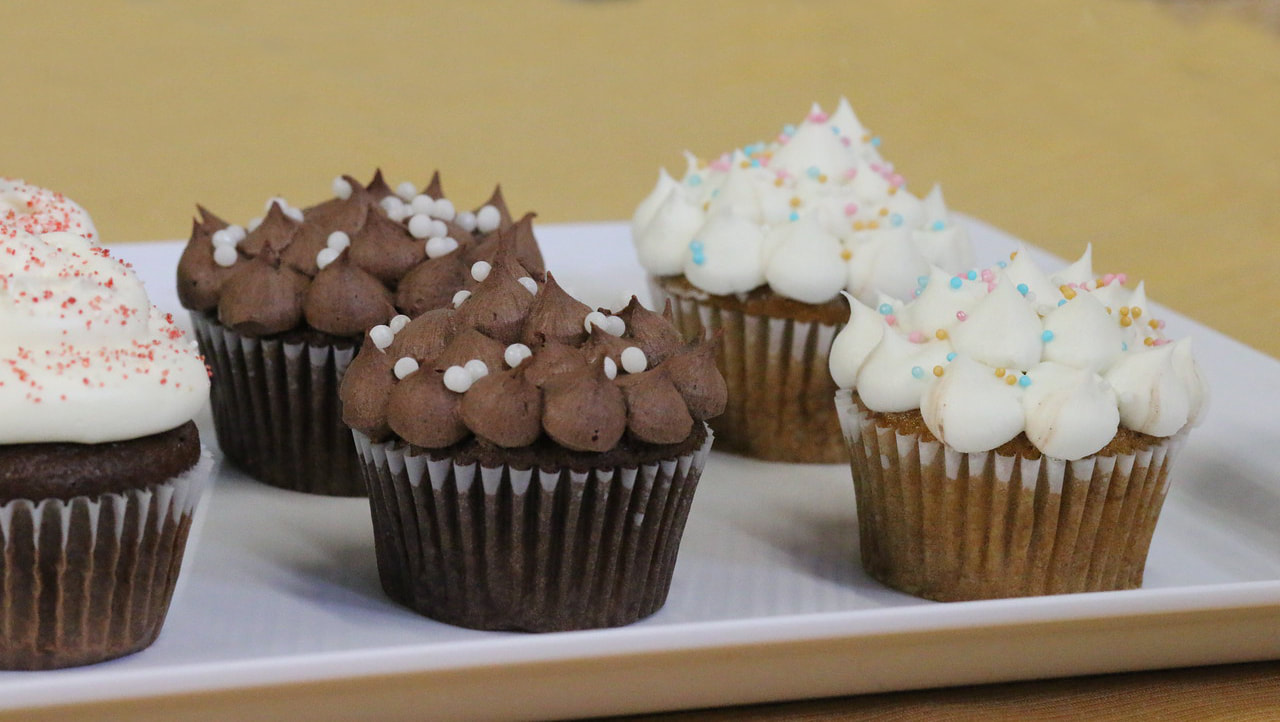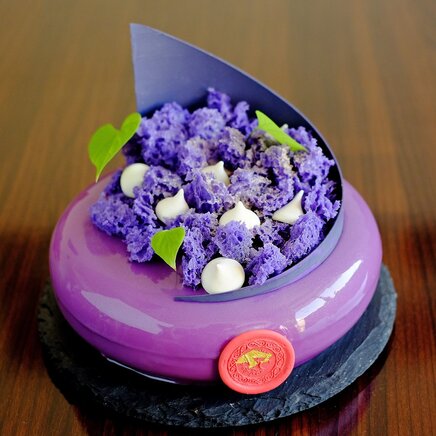|
AUTHOR: Stephanie Teekaram
Food Startup Excerpt: Food Startup Help recently asked Chef Stephanie Teekaram to share any thoughts after her recent return as an administrator and chef instructor for several years at the Pastry & Baking Academy in Trinidad. We originally met Chef Stephanie at the Institute of Culinary Education in New York and respect her opinion on trends she has seen working in New York and abroad (including Greece). As a young black woman in the food and hospitality industry, the Black Lives Matter movement has evoked some thoughts and feelings that I have never had. I have been in this industry practically my entire life and all of my careers have been predominantly in the New York City area with some International posts thrown in. With the arrival of the Coronavirus and subsequently the resurgence of the Black Lives Matter Movement, I’ve had a lot of time to think. I was born and raised in Georgetown, Guyana in South America to a black mother and an East Indian father. Guyana is made up of six races but the Blacks and Indians are the dominant races, hence I am considered a biracial child. Growing up in Guyana in the 80s and 90s, my experiences would have been different from a child of the same age growing up in the United States. Guyana was a British Colony that experienced slavery as did the United States. Unlike the United States, however, slavery was abolished in Guyana in 1834, about 30 years earlier than in the United States (December 1865). As a people, Guyanese had more time to come to terms with slavery and its ramifications; to heal and to build a life. Even then, in Guyana although blacks were the dominant race and the whites were the minority, whites were those who controlled the economy and the legal systems. They used these measures to keep the blacks subjugated. In the United States, after slavery was abolished in 1865, whites were the dominant race and blacks were the minority. And yet again, whites those who controlled the economy and the legal systems and used these to keep the blacks subjugated. By the time I came on the scene, slavery was nonexistent but there was still a system in place that perpetuated the same subjugation I alluded to earlier. Guyana had become a multiracial society aptly called A Land of Six Peoples (Africans, Amerindians, Chinese, Portuguese, East Indians, and the Europeans). Our racial situation existed mainly between dominant races, blacks, and Indians. While I never felt like my opportunities were limited as a result of being black or biracial, I was well aware that racism existed-just that I never felt like I was exposed to it. That, I believe, is due to two main reasons. Firstly, my mother taught us never to see color. Of course, I could look at someone and see that they were different but that never impacted my opinion of them. For me, people were always judged based on the content of their character, not what they looked like. My expectation was that I would be treated the same as anyone else and I never had the feeling that I wasn’t. Secondly, in my everyday life as a child and teen, I never wanted for anything. Guyana had evolved into a society that provided many avenues to equalize opportunities afforded to anyone throughout the country. I went to the best schools; participated in whatever sports, clubs, activities that I wanted to; I went basically wherever I had to or wanted to go; my friends were from different races and socio-economic backgrounds. By all accounts, I had a normal middle-class upbringing. I never felt like any of my childhood experiences were restricted as a result of being black/biracial. A few weeks ago, I listened to Meghan Markle give a graduation speech and she talked about having memories as an 11-year-old of curfews and seeing burning buildings and smoke; men with guns and rifles and burning trees during the Los Angeles riots in 1992. You hear accounts from other people of seeing their loved ones - mothers, brothers, fathers, sons, and daughters arrested, brutalized by police, hung, unjustly murdered because of their race and so much more. In 1992 at 10 years old, I honestly cannot remember what I was doing but I do know that in all my years until now, I nor any of my relatives, to my knowledge, have had similar experiences. Hence, I came to the United States as an adult who, for all intents and purposes, had never experienced racism and had always felt like anything was possible with hard work, education, and determination. The idea that opportunities would not be available to me because I was a black woman was not something I thought of. At the beginning of my career, I worked long, arduous hours, and sometimes without pay, never for free as I was always receiving some form of knowledge and tuition wherever I went. I believe that a willingness to learn, the determination to succeed, and a kind demeanor has made me a better person and chef in the industry. Did I miss some opportunities, or not get some promotions or positions that I wanted or felt should be mine? Definitely. Were they a result of my race or gender, maybe? But how do you know for sure? Unless it’s explicitly said or subtly implied, how do you identify that one conversation or occurrence that makes you say, “that was a result of me being black or a woman?” That’s one of the big questions that has been plaguing me since the Black Lives Matter Movement has emerged. I have now started rooting around in my past trying to pinpoint specific episodes, conversations, anything that may have happened to give some kind of an indication whether any of my experiences were racially impacted - I haven’t found one yet! If I’m being honest, everything good or bad that has happened in my life and career so far, I could say has happened as a result of race or sex. I didn’t get that job because I’m a woman or maybe I did, I didn’t get that promotion because I’m black or maybe I did, but where’s my proof? Unless it’s overt, this is what makes racism so difficult to identify sometimes. Where’s that definitive evidence that supports it? Now, I’m not saying that racism is not a reality. I’m sure many people have experienced blatant racism or sexism in some form. But if after my almost 20 years in the industry, I haven’t felt like I have experienced it - does that make me a bad black person? Does that make me not black enough or insensitive to the cause because, in my opinion, I don’t approach situations with the intent to find racism? I’m aware that it exists, but I always feel like I’m impervious to it. I have always been accused of living in a bubble and it's true. I generally don’t take notice of issues and happenings until they’re at my front door and even then, they have to knock. So, was it easy for me to maybe overlook some form of racism that was directed my way? One hundred percent. But does that then mean that going forward, I should be approaching every instance with caution, picking apart every situation to make sure that an injustice has not been done to me? The next time I don’t get a job, do I look for some indication that it was because I was a black person or a woman? While writing this article and thinking of my journey in this industry, I was remembering a time when I was asked to be a hand model for a notable food magazine. They simply told me that they wanted the hand of a person of color in the magazine. I didn’t make the food, I didn’t do the food styling, it was just my hand holding the dishes. Was this racist? For me, this was an opportunity for inclusion. I was happy to do it. To conclude, the Black Lives Matter Movement has most certainly opened my eyes to what’s happening around me, but I’m still very unsure of how this will all play out in the food Industry. Reflecting on my experiences has led me to realize that it has been very different and difficult for many black people living in the United States and other parts of the world. One only has to listen to the horrible stories of Breonna Taylor, Ahmaud Arbery, and George Floyd to name a few. It is time we move in the right direction after coming to this inflection point in modern American history. We must somehow end up on the right side of history. Many things still remain uncertain for me. What I know for sure though, is that this industry is a resilient one that will bounce back eventually with some changes. What will not change is the value and importance of hard work and respect.
3 Comments
Interviewee: Chef Penny from the New York Metro Region Food Startup Help has reached out to several business owners, chefs, and experts in the food industry to see how they’re adjusting to the changes that the pandemic has imposed on the industry. We have conducted an interview in a Q&A format. For today Food Startup Help is featuring New York, Chef Penny. In this interview, she explains cake trends and what this facet of the field will look like post-pandemic. Food Startup Help: Before the COVID lockdown, what were the biggest trends you were seeing in your perspective of the food industry? I find cake trends tend to last quite a while, so metallics, grey as a neutral color and heavy textures like stone intermixed with delicates like wafer paper or rice paper flowers are all still very popular. For Sugar Couture, we work as much as possible to avoid trends. We believe that for custom cakes, longevity comes with creativity and finding a way to represent each couple in their cake. We work very closely with our clients to find the design that is perfect for their event, and because of this, we don’t copy other’s designs. Food Startup Help: Do you expect that to change or shift after the quarantine period and economic slowdown? How? I have always tried to find ways of working within parameters and budgets, keeping profitability in mind. So the cakes may be simpler than before. One of the things I’m taking away from this time is that as a society, we’ve reduced things down to the necessary. This means that for the moment, delicious is prioritized over extravagant. I imagine as the quarantine lessens, and larger groups become safer, the cakes we’ll see will still be paired back for the time being. And when this is all over, around 2022, I think there will be a decided shift to extravagant as a reaction to the simpler times. Food Startup Help: How is the reopening/planned reopening affecting other businesses you work within your region? I’m seeing a lot of inquiries for 50 serving wedding cakes. I believe that when venues are allowed to reach that capacity, there will be a reasonable amount of events booked for the end of 2020, assuming we stay on the same trajectory in terms of opening post the Covid-19 quarantine. Because of the government guidelines and social distancing, many previously scheduled events are moving to 2021. I think we’re going to see that be a booming year for those in the industry that can hang on until then. I also think that several of the smaller cake companies will close, and move on to other things. So there may be even more opportunity for those businesses that continue on. Food Startup Help: What do food business owners need to be aware of now and for the next few years? Flexibility is going to be key. It always is in business, but in my particular event space, its a very customized experience and so I’m able to bend with their needs. Finding ways of staying profitable while adjusting to smaller projects, with smaller budgets will be essential, but in niche markets like mine, it’s tricky. You can’t just pivot to another product and have it be profitable. Custom work is not set up in the same way that volume work is. There may be a time that we will have to work with much less help and take on a higher volume of projects for a while. Maintaining quality and originality in this will be a challenge, but so important if we’re going to come out on the other side. FOOD STARTUP HELP: Are there other important factors impacting you and your business that you would like to share with our readers? With all large events in the New York City region pretty much canceled or postponed for 2020, our work has shifted to smaller cakes, for smaller gatherings, and with that, we’ve also temporarily suspended our larger minimum order pricing. In the long run, this will not be profitable, but we still want to be a part of as many celebrations as we can to keep up the goodwill with our clients. --- Follow along with Chef Penny on Instagram and her hashtag at @sugarcouturecakes www.sugar-couture.com Interviewee: Natasha Capper, Executive Pastry Chef, Piedmont Driving Club
Food Startup Help has reached out to several business owners, chefs, and experts in the food industry to see how they’re adjusting to the changes that coronavirus has imposed on this industry. We have conducted an interview in a Q&A format. For today Food Startup Help is featuring Atlanta Pastry Chef Natasha Capper. In this interview, she explains how her region is beginning to recover from the pandemic quarantine period. FOOD STARTUP HELP: What challenges did you face reopening your facility? Reopening had some challenges with getting enough PPE and sanitizer. We opened in phases with the first one being food-to-go and were lucky that we ordered the single-use containers needed before suppliers were wiped out. Although we are fully open with numerous limitations the restaurants have been slow to pick up. Suppliers that delivered to us the next day Tuesday through Saturday have almost all cut down their delivery schedules so we are having to plan our ingredient orders ahead better. FOOD STARTUP HELP: What food trends had you been seeing in your business pre the COVID-19 virus? Pre-COVID trends of note were primarily more interested in plant-based diets, more elaborate events for a larger number of people, and a desire for quality dining in a more casual atmosphere. FOOD STARTUP HELP: What do you predict to see more of in the immediate future? The same as before, or is it evolving? I predict we will see much smaller and more intimate events not just because they are currently mandated by the governor, but people are hesitant to spend much time in large groups and there is definitely anticipation of a recession. FOOD STARTUP HELP: What lessons can you share with others in other parts of the world/country that are still in quarantine? Food business owners are going to have to maintain the sanitation and cleaning protocols in place now and keep standards high. Not all customers will demand it but many will and that will influence their decisions of where to eat. I also think if it is feasible to do take-out that could be a valuable resource for additional income since it may take a while for dine-in business levels to build to a sustainable level. Until there is a vaccine or we have herd immunity eating out will pose a risk especially to the medically vulnerable. FOOD STARTUP HELP: What other changes are you seeing that might be a consideration for other businesses? Private clubs like where I work are a luxury. If a member feels that they are not getting what they should for the dues they are paying they can and will leave. The challenges are unique in that we need to provide the amenities expected while doing it as safely as possible and with as little inconvenience to the membership as possible. A lot of complementary items such as quick bread in the locker rooms, candied ginger at host stands, and snack mix on the bars are now gone and probably will not come back. Here is hoping our clientele continues to see value in what we can offer now. Interviewee: Joe Settepani of Bruno Patisserie, Staten Island, NY Food Startup Help has reached out to several business owners, chefs, and experts in the food industry to see how they’re adjusting to the changes that coronavirus has imposed on this industry. We have conducted an interview in a Q&A format. For today Food Startup Help is featuring New York Chef Joe Settepani. In this interview, he explains how his region is beginning to recover from the pandemic quarantine period. FOOD STARTUP HELP: What food trends had you been seeing in your business pre the COVID–19 virus? I think the biggest trend that I was noticing was the amount of love and passion that was going into creating beautiful Viennoiserie pastry around the world and to see how people get excited about layers of butter and dough is pretty amazing. I always thought Viennoiserie was one of the most beautiful parts of baking. All the energy you put in to make a beautiful croissant is always worth it at the end! FOOD STARTUP HELP: What do you predict to see more of in the immediate future? Do you expect that demand to change or shift after the quarantine period and economic slowdown? I think trends, in general, may have a slip due to the quarantine period just because some businesses only sell a certain item and for a high price. I think that will end for a little bit because people may be looking to get more for their dollar and focus on buying the essentials that they need for themselves. The other thing that may happen next is that more people have been cooking and baking a lot during quarantine and may end up just making more baked goods themselves. FOOD STARTUP HELP: Your business remained open during the Covid–19 pandemic. What shifted for your business? Will you keep some of these products or services? What’s going on with plexiglass barriers, masks, etc. We are very grateful at Brunos that we were able to stay open during all of this, it was not easy, and probably the hardest period I have ever worked in my life. Some of the prepared foods to go products we made earlier on were great because parents and adults needed something to keep not only the kids busy but themselves busy as well. But now I see more and more families baking everything at home or cooking so it was a good run with those ideas. We offered a pizza kit to go during the quarantine. We may decide to keep the decorate your own cookie for kid’s birthday gifts because those are popular. In regards to the plexiglass, I ordered to put across the bar area and on top of the bakery showcases. However, this is so much demand for plexiglass that I ordered them about 3 months ago and I am currently still waiting for them to come in. As for the customers, masks and gloves, and social distancing, we are following all the rules and regulations that the City of New York places into effect during each step of a new phase. Currently, we are in NYC Phase 2 which just allowed outside dining with the social distancing of 6 feet. Food Startup Help: What do food business owners need to be aware of now and for the next few years? What recommendations do you have for similar businesses in other areas? The food industry and food business owners need to take the ultimate steps to not only protect their employees as they work together in a kitchen, which let’s all be honest it’s hard to work behind a hotline 6 feet apart. We have to think of ways to keep each other safe while making amazing meals and pastries so customers can enjoy it. In the next few years until we have a vaccine I believe the dynamic of a kitchen and the flow of it will change so each employee in that kitchen is not only able to communicate and work well with the one next to them, but also have enough distance between them so that they do not need to worry about anything from a health risk perspective. The best recommendation I can give is to just be on top of your employees to make sure they are taking every step to make sure everything is safe and sanitary. And also have employees get tested or even do your own employee temp check before anyone enters the building for work. FOOD STARTUP HELP: Are there other important factors impacting you and your business that you would like to share with our readers? I think the hardest part is getting a grasp of all the new rules and changes that occur during all the new phases that occur because every time there is a phase change, there is a rule change. That has been the hardest part–just getting ready and compliant for every change. Executive Pastry Chef Joseph Settepani Bruno Bakery & Restaurant 1650 Hylan Blvd 646 Forest Ave Brunosnyc.com Instagram: @Brunosnyc Pastry Chef Instructor at I.C.E [email protected] [email protected] Instagram: @chefjosephsettepani @brunosnyc @iceculinary Interviewee: Tina Korting
Food Startup Help has reached out to several business owners, chefs, and experts in the food industry to see how they’re adjusting to the changes that coronavirus has imposed on this industry. We have conducted an interview in a Q&A format. For today Food Startup Help is featuring Cleveland-based Tina Korting. Tina is a chef turned sales manager who works with food industry clients ranging from universities, casinos, hotels, manufacturers, bakeries, and restaurants. In this interview, she explains how her region (which includes customers in Michigan, Indiana, Kentucky, Connecticut, New York, New Jersey, Ohio, and Pennsylvania) is beginning to recover from the pandemic quarantine period. FOOD STARTUP HELP: Before the COVID lockdown, what were the biggest trends you were seeing in your perspective of the food industry? Buffets were very big, especially in the casinos. FOOD STARTUP HELP: Do you expect that to change or shift after the quarantine period and economic slowdown? How? Yes, definitely. There are definitely no buffets or self- service. We are now most likely to see more table service. Casinos are planning to eliminate self-service and serve plates to individuals (so no more cheese boards, charcuterie boards). For example, bento box type formats will probably do well. In my region, some territories are slowly reopening. Grocery stores and bakeries have stayed open throughout the quarantine period, as have places like chocolatiers with E-commerce. Other places like New York – not yet. There are no events and corporate dining is not yet reopened. FOOD STARTUP HELP: How is the reopening/planned reopening affecting other businesses you work within your region? Food safety will be at the forefront. We as food professionals are used to this and have been trained about safety from the beginning. Relaying this message to the customer on how their food is prepared, safely, would greatly ease client anxiety while eating out. FOOD STARTUP HELP: What do food business owners need to be aware of now and for the next few years? Be flexible and creative. Figure out how to serve meals differently and safely. Most customers are installing Plexiglass partitions, for example, between tables to create dining cubes and tables are generally more spaced apart. Servers are wearing gloves and masks everywhere. FOOD STARTUP HELP: What resources do you offer that can help those businesses change/succeed? Through the transparency of where and how our products are from. Know the source of your ingredients. We are committed to giving detailed information about our products. This is more important than ever now. FOOD STARTUP HELP: Are there other important factors impacting you and your business that you would like to share with our readers? AUI is here to help our communities by having premium, sustainable products that are created with the highest standards. AUIFineFoods.com Food Startup Help features a vegan influencer, Holly Pearce! In this informative blog, Holly talks about different products available to vegan diets, changing trends in the market regarding veganism, its lifestyle, and her new eCookbook!
It’s crazy with a 5-year look back to when I started eating a vegan diet from eating a vegetarian diet. 5-years ago, the first vegan cheese available smelled like rotten socks and there were hardly meat alternatives available in the UK. There were good options for vegan milk, but very few options for any processed products. Every January here there is a huge launch for Veganuary. Every January non-vegans sign up for eating vegan during the month of January just to see if they can do it. So now every Veganuary company introduces new vegan products. For example, this year M&S (Marks & Spencers) introduced 50 new vegan products. I bought a Chicken Kiev you cannot tell that it was vegan! There are now so many options for vegan cheese that it is impossible to know what cheese to want to buy and they’re all pretty much great tasting, good visually, meltable, etc. Veganizing the Classics. So more businesses are catching onto creating veganizing classic things. For example, according to the BBC the Gregg’s supermarket chain experienced a 13.5% increase in their bakery sales after introducing a vegan version of their classic, meaty sausage roll. Vegans do not necessarily want healthier, vegetable food alternatives because for a majority, that is not driving their decision to eat a vegan, plant based diet. There are still clear gaps in the market for vegan foods, especially desserts (because producers are mistakenly thinking vegans only eat super restrictive, non-sweet diets). Producers seem to think all vegans are vegan for their health, but I know from my following that many vegans want vegan versions of foods “without the cruelty.” For example, a digestive biscuit (cookie) is a nice, mainstream but non vegan product. Nobody has introduced a vegan version of this classic. Or, while I can find independent, artisan vegan chocolate – there is no mainstreaming of chocolate bars with a kit kat or snickers bar. These are still “missing” on the market. Some food producers are missing a market for sales because they are not making vegan versions of desserts yet – especially biscuits, cake and chocolate if they could be the same price as the non-vegan versions. Markups on Vegan Foods. Unfortunately, what is available usually has a high markup. Galaxy sells a plain semi sweet bar which is vegan and 3 UK pounds for 100 grams which is much more expensive than a normal Galaxy chocolate bar 1.5 UK pounds for 155 grams. That comes out to 0.03 pence per gram versus 0.01 pence per gram and that is incredibly more expensive for the vegan chocolate. The current cost for vegans to shop for prepared foods is more than for the general population. You would eat mostly starchy vegetables very cheaply but if you want vegan bacon, vegan cheeses, it can easily be double the price of the family shopping bill. The more prepared foods I buy versus just ingredients, the more the grocery cost increases. For a budget vegan, if you bulk buy vegetables, buy pasta and rice, you can buy products less expensively that are “accidentally” vegan. It is true that vegan milk is cheaper now because it has become more main-stream. But if you are not careful you can easily spend a lot more than you would expect at the supermarket. Also as a group we tend to eat more fruit and fruit costs can add up. These higher price points drives the competition for more vegan product launches and the quality result rises as well. Beyond Meat is so realistic that my non-vegan parents will happily eat Beyond Meat – It’s pricey and better for the environment, but premium burgers are pricey and not better for the environment. A large number of vegans do want recyclable packaging and reduced packaging, and seems to also add to the prices. Vegans as a group are more educated and caring about the environment, so they know about landfill and global warming issues. Instagram Followers. I am lucky because as an influencer I am sent a lot of new vegan products to try. If it’s a paid post or a gift to me – there’s a difference how I share it with my followers. If a brand pays me to post something, I have to take one photo and 3 stories and the brand approves and edits. I would like to do more of that, but I will not use it in any posts and it’s a great advertisement for a company without much cost to them. But most products these days are actually really good quality so I’ve only refused about three – and in that case I’ll just re-gift it. A Balanced Vegan Diet. I originally converted to vegan for Lent from a vegetarian diet. I did not know what I was doing, and only ate stir frys or simple currys all Lent. In the beginning, I didn’t really research proteins, and vitamins, etc. and I was quite deficient nutritionally. I was vegetarian again for a few months, did more research and became vegan with a B12 supplement. I was vegan for a year before I started the @VeganLovingLife account on Instagram because I can show people how to eat a really good vegan diet, improve the flavors, and pull it all together. I now realize that there is so much more that needs to go into a successful vegan diet, and although there are more and more high quality prepared foods available – I want to help people cook a diverse range of recipes easily. Being vegan has given me energy, better digestion and feeling healthier. The foods I am eating are very good for me. I do think a balance between foods you cook from scratch and buying processed foods are important. A non-vegan can easily eat only mac and cheese, tater tots and beans – you cannot have a balanced diet any more or less as a non-vegan or vegan. Eating vegan foods is not complex and it’s a great lifestyle. Order My VeganLovingLife’s Everyday Eats eCookbook! I decided to write a cookbook because I had time and thought it would be a really accessible way for people to see the recipes rather than scroll through a year of photos and my prior Instagram posts. This way as an ebook they’re all in one place and people can see it on their phone while they’re cooking. It means people can eat more vegan cooking from these recipes. I get lots of messages with recipe ideas from my followers, and people ask me for advice and tips for going vegan – what do I need to know. I get my ideas by looking at Instagram for what flavors and foods other people are eating, or I will think of something during the day I want to eat, and plan out the meal. The Instagram account is a really good way to promote veganism. I have made great connections and friends. We first started to meet up at the annual VegFest – loads of new vegan brands are introduced there, and it is amazing how realistic and flavorful the new vegan products are. Veganism is a huge movement in the UK. Order her ebook VeganLovingLife Everyday Eats at linktr.ee/veganlovinglife Responding to COVID-19 as an food industry veteran and current graduate student in London, England4/14/2020 Interviewee: Chef Magdalena Wong
Food Startup Help has reached out to several business owners, chefs, and experts in the food industry to see how they’re adjusting to the changes that coronavirus has imposed on this industry. We have conducted an interview in a Q&A format. For today Food Startup Help is featuring Chef Magdalena Wong, graduate student at the University of London studying Applied Educational Leadership and Management, pastry chef for 18 years, and former Education Leader in Vocational Education and Training (VET), Hong Kong FOOD STARTUP HELP: What is happening in your business now given the COVID-19 virus? Are you still able to work? I left the VET sector last year since I am in the planning phase of building a cafe/bakery here in Taipei, Taiwan towards the end of this year/early next year. Since Covid-19, I am now rethinking my business strategies and plans knowing how disruptive pandemics can be. I feel the immense responsibility that I will be undertaking as to ensure that my business will not only grow, but to be able to sustain through tough days, months, and even seasons. Most importantly, my staff and I can remain secure (emotionally and financially) should another pandemic worse than Covid-19 attacks us. FOOD STARTUP HELP: What are your hopes for the near future in terms of your work? With great aspirations comes great responsibilities... As a future business cafe/pastry chef owner, I aspire and owe it to my staff and customers to offer consistent and high quality bread and pastries. I have learned from 18 years working in Michelin star rated establishments in New York City, Paris, Yountville/Napa, Hong Kong, and now here in Taiwan that striving daily towards excellence (in food and customer service) always produces rewarding results. F&B is a harsh and unforgiving industry with high turnover so it's not easy to stay afloat but if you persevere, sacrifice, and give back, the relationships/friendships built are everlasting. I believe in and practice transferring my professional experience and knowledge to the next generation of aspiring pastry chefs as a former VET educator and as a future business owner. As I transform through each growing stage of my business, I hope to equip my staff one day to also be an 'edupreneur'. FOOD STARTUP HELP: If we had not had the virus change our lives, what had you been seeing as the most important food/beverage related trend(s) in what you do? Enduring times like the Covid-19 pandemic may have transformed us (hopefully for good) as we are no longer the same especially the way it impacts the food service/hospitality industry. I hope this will strengthen our relationships with friends, family, colleagues, and our local community allowing us to focus on what is most important in our lives: one another. Food takeout, delivery services, and grocery stores ensure that people, especially the vulnerable, are receiving essential needs. I also believe in using technology and social media platforms to streamline food ordering processes for existing and new customers while being connected to learn about their preferences and needs. I hope there will be more resourceful tech developed to enable all of us to stay well connected to serve customers and our communities along the food supply chain amidst challenging times. FOOD STARTUP HELP: What do you think was driving these trends in the food//beverage industry or educational system? What did people want? The need to improve communication platforms and being able to stay connected with each other are the driving force to developing new tech and tools in the F&B industry as well as the educational system. Look at 'Zoom' and how it enables us to conduct meetings or teach students online. Relationships (professional or personal) are the most meaningful and valuable assets in our lives and we need to seek ways to maintain and grow them amidst pandemics and other unforeseen circumstances in order to expand our abilities in being selfless. At the end of the day, we just want to be fed in the stomach and our souls as human beings without discrimination. However, we have become human 'doings' instead of 'beings' by staying busy. I hope we can reprioritize our lives to focus more on our health (mental, spiritual, relational, and physical) with deep intention by feeding and nourish each other's spirits with positivity and our bodies with quality food and exercise. FOOD STARTUP HELP: Do you have any specific hopes or expectations for what will happen when we get through the economic impact from the COVID-19 virus? What do you think people will want? I hope everyone will use this time to take stock of their spiritual and physical health and commit to loving themselves and each other by making healthy food and lifestyle choices. Take inventory of what is most important in our own lives and commit to it day after day after day. Most people seek to live each day in the path of least resistance towards comfort and happiness, if I may encourage all of us to not be afraid to seek discomfort, yes, discomfort. This is where growth happens to be equipped to face turbulent times like this. In my opinion...exercising consistently, choosing healthy food options with occasional rewards, and sleeping more are the foundations to longevity and living a joyful life. I suppose we just want to be relevant and purposeful by being connected with others, even introverts like myself need to socialize every so often. I would think that we just want to be healthy so we can pursue life with purpose. Working restaurant hours for many years, I didn't have the discipline and commitment to improve my health as I was stuffing my face with pastries daily. I couldn't run a couple miles a few years ago but with the commitment to gradually train daily, I am now racing in marathons and placing on podiums competing in duathlons around the world with my husband who races in Ironman/triathlons. Signing up for races teaches me how to commit to build grit, work through phantom pain, and mental negativity. These are my greatest rewards to living daily life with more energy and hope for the future even in times like this. FOOD STARTUP HELP: Is there anything else you would like to add, or for potential food industry professionals, entrepreneurs, students, and/or your customers to know. I've come to learn from all the years working in the F&B industry that individuals who gravitate and survive in this industry are true warriors not afraid of hard work, long hours, and inequality. These personal traits and work ethics will enable us in F&B to come back stronger than before when we are able to serve our communities again. There will be tough times but if we persevere, support each other, and lean on our community, we can get through this together. ____ Follow along with Chef Magdalena Wong Instagram: Chefiemag Interviewee: Chef Michelle Tampakis, Chef/Owner Whipped Pastry Boutique
Food Startup Help has reached out to several business owners, chefs, and experts in the food industry to see how they’re adjusting to the changes that coronavirus has imposed on this industry. We have conducted an interview in a Q&A format. For today Food Startup Help is featuring Chef Michelle Tampakis. In this interview, she explains how she is responding to the pandemic and what she looks forward to once this hardship is behind us. FOOD STARTUP HELP: What is happening in your business now given the COVID-19 virus? Are you still able to work? Whipped Pastry Boutique shut down on March 19, 2020, as a result of the Coronavirus. All our hotel/restaurant/catering clients were canceling their orders one after another in rapid succession. Although our supermarket/specialty grocer customers were still placing orders, it was not sufficient to sustain the business. A note from one of Michelle’s daughters via Facebook, when the virus forced the closure of small businesses, Michelle used up all the ingredients she had on hand at Whipped Pastry Boutique and baked to deliver goods to hospitals for doctors, nurses, hospital staff. FOOD STARTUP HELP: What are your hopes for the near future in terms of your work? I don't think the near future is something to count on. I believe it will take many months, maybe more than a year for our hotel/restaurant/catering clients to catch up. Travel will resume eventually, but all the events, (weddings, christenings, bar mitzvahs, etc). that we had orders for will not suddenly all be rescheduled as soon as the shelter in place orders are lifted. I think people will change the way they live for a few years after this experience, at least until the shock wears off. People who go weeks without work and have to make do with unemployment checks will be more frugal. There will be many restaurants that never re-open and those employees may have to transition to a new type of work since restaurant jobs will be fewer. FOOD STARTUP HELP: If we had not had the virus change our lives, what had you been seeing as the most important food/beverage related trend(s) in what you do? If the virus had not changed our lives, the trends I was seeing in my bakery were for more and more vegan items, with fewer ingredients. FOOD STARTUP HELP: Is there anything else you would like to add, or for potential food industry professionals, entrepreneurs, students, and/or your customers to know. Prospective entrepreneurs, students, etc. should expect to really understand the market they are getting into, pay close attention to the regulations (which are only getting stricter and more cumbersome with the Food Safety and Modernization Act) and have a real marketing plan in place, with money budgeted towards that. Understanding how/why to keep customers coming back is critical. Listen to customer feedback and follow up on it. Don't take your customers for granted. --- Follow along with Chef Michelle Tampakis on Instagram and her hashtags at @WhippedPastryBoutique and look for notifications of her online gluten-free courses on CourseHorse.com Instagram #Whipped Pastry Boutique www.whippedpastryboutique.com Interviewee: Chef Claire Stewart
Food Startup Help has reached out to several business owners, chefs, and experts in the food industry to see how they’re adjusting to the changes that coronavirus has imposed on this industry. We have conducted an interview in a Q&A format. For today Food Startup Help is featuring Chef Claire Stewart, Associate Professor in the Hospitality Department at New York City College of Technology, CUNY. In this interview, she explains how the city and university are responding to the pandemic and what he looks forward to once this hardship is behind us. FOOD STARTUP HELP: What is happening in your business now given the COVID-19 virus? Are you still able to work? I am able to work because I work for a large institution and am fortunate to have tenure and am in a teacher’s union. All my courses have been converted on-line. FOOD STARTUP HELP: What are your hopes for the near future in terms of your work? I have two edited book chapters for two different books under peer review right now, hoping that both will be published in 2021. FOOD STARTUP HELP: If we had not had the virus change our lives, what had you been seeing as the most important food/beverage related trend(s) in what you do? The boundaries between haute cuisine and comfort food have shifted irreversibly. Upcoming chefs are not insecure about not speaking French or working in “starred” restaurants. Contemporary cuisine looks to cultures beyond Europe for inspiration. Nordic and Atlantic cuisine are very popular, and their popularity lends itself to the sustainability movement. FOOD STARTUP HELP: What do you think was driving these trends in the food//beverage industry or educational system? What did people want? The internet and social media have made it increasingly challenging to present customers with something new and Instagram-ready. Boundaries keep getting pushed in order to offer more colorful, photo-ready food for an audience that wants to be a part of the process. Millennials and Gen Zers want to customize their food; to be involved in its sourcing, and to photograph it. Hunting and foraging are rising in popularity with this cohort for these reasons as well. FOOD STARTUP HELP: Do you have any specific hopes or expectations for what will happen when we get through the economic impact from the COVID-19 virus? What do you think people will want? I think any activity that involves people gathering in numbers will continue to be affected. Surely restaurants will ramp up their take-out selections. Service jobs (wait staff, bartenders, etc.) will continue to be threatened by automation. My hope is that businesses are able to recover, but it will be a hard road. FOOD STARTUP HELP: Is there anything else you would like to add, or for potential food industry professionals, entrepreneurs, students, and/or your customers to know. I have been trying to convey to my students 2 important things. 1. There is opportunity in disaster. The cream will always rise to the top. In 2008 during the recession there was an out-of-work house painter. He had no education and had spent a lot of money on purchasing industrial paint equipment. No one was getting their house painted during bad economic times, so he was suffering. One day, driving through a depressed housing development, he was startled by all the empty foreclosed houses, given over to the bank and left abandoned. Every house had “for sale” signs in front, but the houses looked terrible from the outside because all their lawns were dry and brown. He used his equipment to spray one of the lawns dark green, making the lawn look alive and much better than the lawns of the houses around them. A realtor saw this and contacted him. He ended up “painting” all the lawns in the development and ended up hiring staff to keep up with demand as other companies contacted him. I shared this story with my class last week and asked them to inventory what they had, and how could they use it? Students wrote that they could teach dance, or paint nails, or deliver food, act as a Spanish translator, etc. Everyone has something they can use to create revenue. 2. Employees (or budding entrepreneurs) must be able to follow directions. Before the epidemic jobs were flush. Now they are not. So workers need to reassess how they bring value to their employers or to their clients. One talent that makes a good employee is the ability to follow instructions. Without verbal or physical clues (doing on-line work) this is more important than ever. ____ Follow along with Chef Claire Stewart on http://www.aslongaswebothshalleat.com/ Interviewee: Chef Nouel Omamalin
Food Startup Help has reached out to several business owners, chefs, and experts in the food industry to see how they’re adjusting to the changes that coronavirus has imposed on this industry. We have conducted an interview in a Q&A format. For today Food Startup Help is featuring Chef Nouel Omamalin, Innovation Pastry Chef/Owner of food consultancy Nifty Chef, LLC. In this interview he explains how UAE is responding to the pandemic and what he looks forward to once this hardship is behind us. FOOD STARTUP HELP: What is happening in your business now given the COVID-19 virus? Are you still able to work? My business has taken a sudden and steep dive indefinitely wiping out my calendar of activities for the next six months. As weeks progressed and the quarantine repeatedly extended, it was becoming more uncertain. As an immediate solution, I have strategized two things:
I am still able to provide deliverables to a few of my long-term partners in the business. However, there is still that element of fear things may halt for some time if the lockdown crosses over a period of two months. I need to be able to do quick changes and be more malleable to new situations cushioning the impact of the pandemic. FOOD STARTUP HELP: What are your hopes for the near future in terms of your work? The food industry is a very resilient industry. Hence, it will always be a bright future ahead. I am still excited for what the future holds because, if anything, this pandemic or any seemingly cathartic episode for that matter will usher in new business models and new industry paradigms. In short, there is something to learn from it and companies will come up with new ideas. In my case, I have realized how important it is to capitalize on the long-term rather than taking in projects for short-lived gains. I have already begun investing in certain projects where I have a stake in that business. When that business grows you grow, too! It’s a way of earning passively. The pandemic has made it clear the way to survive the uncertain future is to be prepared NOW. FOOD STARTUP HELP: If we had not had the virus change our lives, what had you been seeing as the most important food/beverage related trend(s) in what you do? As far as the Middle East is concerned, I believe businesses here will continuously capitalize on two things:
Food trends will remain driven by social media, most especially Instagram. Consumers will always look for the next best instagrammable moment and businesses will unceasingly be challenged to come up with more clever ideas to outdo the competition. The need for menus catering to niche markets such as vegan, keto, paleo or low-calorie food will steadily grow and eventually push conventional operations to accommodate these dining lifestyle metamorphoses. Cafes offering specialty coffees will hit a plateau in certain regions. However, this will not stop entrepreneurs and coffee connoisseurs from coming up with new ideas and concoctions to keep the market alive. In response to a tightening competition, more and more roasteries will open. Lastly, old favorites will resurface such as doughnuts, cookies and soft serve ice creams. New twists on these nostalgic items will keep the market entertained. FOOD STARTUP HELP: What do you think was driving these trends in the food//beverage industry or educational system? What did people want? Social media and the prevalence of wireless technology. Life is at our fingertips. It challenges businesses to be highly creative and quick-witted. The market will rely heavily on the visuals they see online and this pushes business owners to innovate 24/7. People want to be entertained and they want to experience new things. For businesses to survive, they must keep their market share excited or they risk being abandoned because there is a better dining place next door that is more unique and fun. FOOD STARTUP HELP: Do you have any specific hopes or expectations for what will happen when we get through the economic impact from the COVID-19 virus? What do you think people will want? Firstly, business owners need to realize they need to have a strong conviction in what they are investing in. If they’re simply opening a shop because they have the means to open one, this won’t be sustainable. There will be a series of bad decisions resulting from the lack of basic understanding or “love” for the F&B business. This results in a weak structure that can be easily swept away by any similar gigantic event in the economy. Even before the pandemic struck, it was already clear how feeble these copycat businesses have become. Secondly, businesses need to strike a balance with the inventory of their menu. I always advise new investors to limit their range of products to give them room to continuously surprise the market while also keeping their stocks minimal. As a corollary, the manpower requirements will also be much less making it easier to manage setbacks avoiding having to do a laying en masse. Thirdly, it is imperative business owners learn how to manage expansions via franchising or otherwise. Again, this connects to that tempting choice to haphazardly expand to capture a larger market without realizing this can be detrimental to the brand’s future if the first outlet is not yet mature or strong enough to stand as a brand. FOOD STARTUP HELP: Is there anything else you would like to add, or for potential food industry professionals, entrepreneurs, students, and/or your customers to know. In regards to the market, people will be more keen to order online more than ever. There will also be an increased demand for healthier items - in the real sense of it. Focus is more on organic items from fruits to vegetables to sweeteners. Vegan or vegetarian dining may gain an increased following as more animal rights activists will use COVID-19 as the main agenda in discouraging people from consuming animal products. There may also be that remnant stigma to crowded places. Design-wise, restaurants or cafes may need to provide a more spacious seating arrangement providing “social distancing” amongst their patrons. Nouel Omamalin Innovation Chef/Owner, Nifty Chef LLC Instagram - @chefnouel +971 4 587 4313 | +971 56 847 7400 | [email protected] https://www.chefnouel.com Sheikh Mohammed bin Rashid Blvd., Downtown Dubai, Dubai, United Arab Emirates --- Follow along with Chef Nouel Omamalin on Instagram and his hashtags at @chefnouel |
AuthorFoodStartupHelp helps clients all over the country start new food-related businesses and turn around food operations that are experiencing challenging issues. Archives
July 2020
Categories |









 RSS Feed
RSS Feed